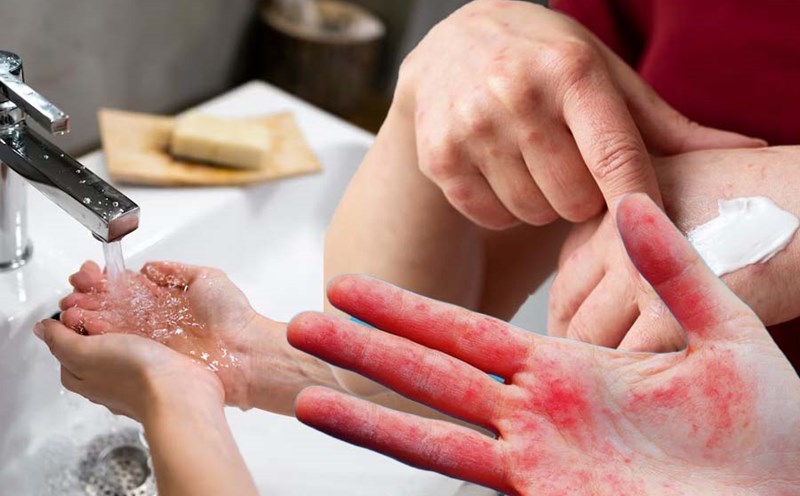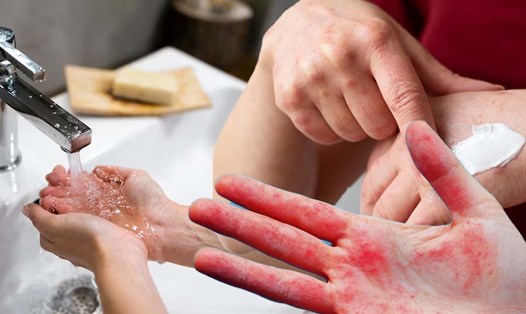What is anxiety rash?
According to mental health expert Dr. Ajit Dandekar, anxiety rash is a skin reaction that usually manifests as hives, rashes or small itchy bumps that appear due to emotional or psychological stress. This condition is not caused by external allergens or infections, but is closely related to the body's physiological response to anxiety and stress.
A study published in the Saudi Medical Journal found that highly stressed medical students had higher rates of oily, waxy patches on the scalp, dandruff, dry rashes, and painful, itchy skin than normal people.
Causes of anxiety rash
Anxiety rash can be caused by many reasons, there are some main causes that researchers have listed as follows:
Histamine release due to stress and anxiety:
A study published in Biomedicine & Pharmacotherapy found that excessive anxiety and stress can cause the body to activate and release chemicals such as histamine, which is a mediator that causes allergic-like reactions. Histamine is responsible for hives, red patches or small itchy bumps.
Body temperature fluctuations:
Anxiety can cause fluctuations in body temperature, where the body heats up suddenly without sweating enough to cool itself down, leading to stress rashes. A study published in the journal Temperature found that people with anxiety rashes can experience peak body temperatures of up to 40 degrees Celsius, which can be the result of medication or autonomic nervous system disorders.
Itching due to chronic anxiety:
Chronic itch is often associated with increased anxiety and emotional disturbances, according to the study, published in the journal Neuroscience Biobehavioral Rev. The central nervous system plays an important role in this process because it regulates both the stress response and the sensation of itch.
Psychological urticaria:
Stress and anxiety can trigger psychogenic urticaria — a rash that can even cause blisters without a physical allergen. Emotional stress can make the condition worse. A study published in the British Journal of Dermatology found that a certain percentage of psychiatric patients suffer from urticaria.







